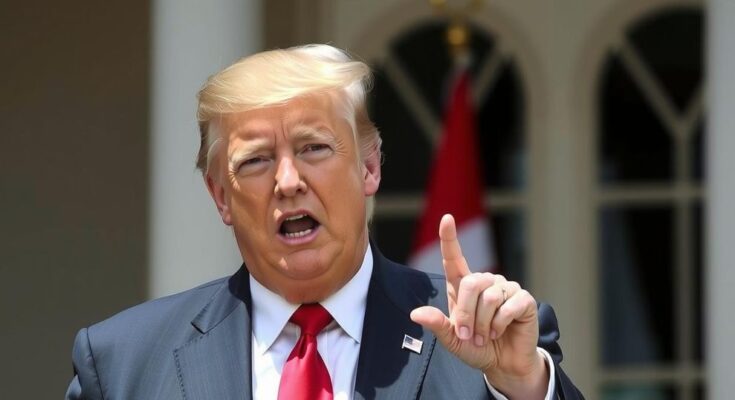As Donald J. Trump prepares to take office, his stance on the Syrian civil war emphasizes a potential non-interventionist approach. He describes Syria as a land of “sand and death,” advocating for the U.S. to abstain from involvement in the conflict. Trump’s selection of Tulsi Gabbard, a critic of U.S. interventions, further aligns with this strategy, signaling a significant departure from traditional American foreign policy in the region.
President-elect Donald J. Trump stands on the brink of assuming the presidency amid a precarious situation in Syria, a nation that has been engulfed in civil unrest since 2011. The specific strategies he will adopt regarding Syria’s future, particularly concerning the Syrian government and its various opposition groups, remains ambiguous. Trump’s historically critical view of U.S. involvement in foreign conflicts positions him toward a non-involvement stance, reflecting a broader skepticism of America’s military engagements overseas.
Mr. Trump has expressed a distinct lack of interest in Syria, referring to it derogatorily as a territory characterized by “sand and death.” His remarks about the situation underscore his belief that the U.S. should abstain from foreign entanglements, encapsulating this sentiment in a recent social media post insisting that the Syrian crisis should be left to resolve by itself. This opinion is further supported by Vice President-elect JD Vance, who similarly criticizes American foreign involvement.
In his upcoming administration, Trump has indicated plans to appoint Tulsi Gabbard, a former Democratic congresswoman, as his director of national intelligence. Gabbard has been a vocal advocate against U.S. interventions, particularly in the Syrian civil war, which aligns with Trump’s inclination towards a non-interventionist foreign policy. The evolving stance of the Trump administration on Syria represents a significant pivot away from past U.S. strategies aimed at fostering regime change in the region.
The Syrian civil war has waged since 2011, leading to a complex landscape dominated by various factions, including rebel groups with affiliations to extremist organizations. The United States has previously engaged in military actions and supported certain groups within the conflict, driven by aspirations for a more democratic governance in Syria. However, increasing public skepticism regarding prolonged military engagements has influenced recent political discourse, enhancing calls for a reevaluation of U.S. foreign policy in the Middle East under the incoming administration.
In conclusion, President-elect Donald J. Trump’s approach to the ongoing crisis in Syria appears to be one of non-involvement, emphasizing a broader skepticism towards American military engagements abroad. His critical stance, underscored by his selection of figures like Tulsi Gabbard who echo similar sentiments, indicates a possible shift in U.S. foreign policy that prioritizes a hands-off approach towards the tumultuous situation in Syria.
Original Source: www.nytimes.com




